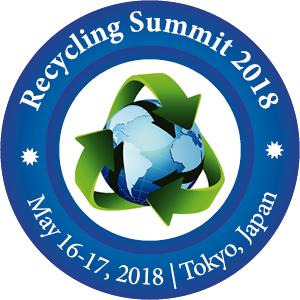
Annemiek Verrips
CPB Netherlands Bureau for Economic Policy Analysis, Netherlands
Title: The circular economy of plastic: Case of the Netherlands
Biography
Biography: Annemiek Verrips
Abstract
The circular economy aims to reduce the use of raw materials, promote re-use and recycling and limit waste. This study focuses on the circular economy of plastics and investigates what major problems are in relation to the use of plastic and to what extent government policy is effective. We carried out a literature study and paid several working visits. The production of plastic has grown enormously and is expected to increase further. The most important environmental damage caused by plastic is pollution, especially plastic soup, and carbon emissions. The depletion of natural resources, oil and gas, is not an important issue in relation to plastic. An increase in the recycling of household plastic will not automatically benefit the environment. It is preferable to augment the quality of recycled plastic over increasing quantity. Policy could provide incentives to increase the quality of recycled plastic. Furthermore, businesses could alter their strategy by using plastics that are better recyclable. The environmental benefits of recycling household plastic are currently limited. It does not reduce littering or plastic soup. Carbon reduction is limited to about 0.15 percent of total carbon emission in the Netherlands. The use of bio-based plastic (plastic made of biomass) is no solution with respect to plastic soup. Most bio-based plastic are not biodegradable. For bioplastic to be biodegradable you generally need an industrial environment. Bio-based plastic can reduce carbon emissions, but net results vary widely due to side effects (biodiversity, food, energy, use of fertilizers). Policy measures that help reduce littering and plastic soup could be: extending the packaging deposit system, regulation with respect to plastic (for example in cosmetics), innovation in removing plastics from waste water and measures to reduce plastic in organic waste which is turned into compost.

